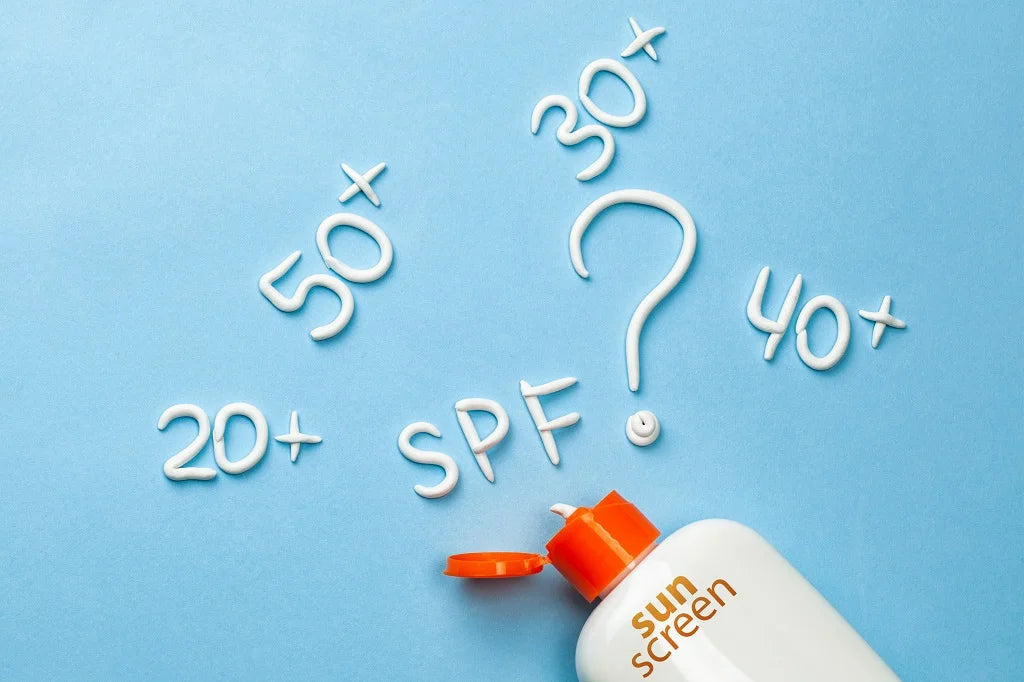
SPF : What Is It? What Are It's Types?

Dr. Deepthi Prasad, MBBS.
Written by Our Editorial Team
Source : Shutterstock
A breezy day at the beach is never complete without a thick blob of sunscreen sitting on your face that our mothers slathered on our faces to protect us from the deadly UVB and UVA sun rays. It has been instilled in our brains by our mothers and dermatologists alike how important it is to wear SPF sunscreen. But what exactly is an SPF, and what does the number near the SPF on sunscreen packaging imply? Follow us along to find out!
What is SPF?
The United States Food and Drug Administration (FDA) explains that an SPF translates as sun Protection Factor. SPF measures the degree of UV radiation required for a sunburn to occur on protected skin relative to the amount of UV radiation required for a sunburn to occur on unprotected skin.
There is a general misconception about what SPF stands for. Most customers believe it states the amount of time a product user can stay in the sun, but this is not true. Because SPF in reality indicates how well the sunscreen protects us from getting a sunburn.

Source : Shutterstock
What are the different types of sunscreens?
There are multiple sunscreens for the face on the market currently, and there is no shortage of choice. Sunscreens range from cream to spray in the Indian Sunscreen market.
Also Read : Choose A Sunscreen That Suits Your Skin
1. Lotion/ Cream

Source : Shutterstock
This is an age-old formulation for sunscreens and sun blocks. It is the best sunscreen for dry skin because of its creamy and opaque consistency.
2. Gel

Source : Shutterstock
This new form of sunscreen has been on the rise lately and has been called the Best Sunscreen For Oily Skin. This water-based formulation has a lightweight feel, unlike cream sunscreens, which makes it a good base for sunscreen wearers who layer it under their makeup.
If this sunscreen seems perfect for you, then we recommend you try ThriveCo’s Ultra Light Mineral-Based Daily Sunscreen Gel, the best sunscreen for the face. Its ultralight formula makes a perfect sunscreen for oily skin, and it's properly multi-active with ingredients such as 33 kDa Hyaluronic Acid, SunCat DE, Polyglutamic Acid, and Resveratrol, making it a unique formulation that fights in all weather conditions and calms sun-stressed skin.
Also Read : Sunscreen Gels Vs Creams: Which One Should You Pick?
Review Shared by Saraswathy S
"I love the feel of the product on my skin. It is non- greasy, easily absorbed and doesn't leave a white residue."
3. Stick

Source : Shutterstock
This is a simple form of sunscreen that comes in a stick-like deodorant, aids in a mess-free sunscreen application, and gives the perfect kind of protection needed to protect your delicate lip skin.
Why should I apply sunscreen frequently?
 Source : Shutterstock
Source : Shutterstock
- Wearing sunscreen regularly protects you from UVA and UVB rays, which pose a serious threat to skin cancer.
- Sunscreens prevent sunburn damage.
- Researchers have discovered that UVA and UVB rays accelerate ageing, so packing up on sunscreen when you are young reduces premature ageing and wrinkling of the skin.
Also Read : Some Sunscreen Questions Answered For You!
We hope you enjoyed our blog on SPF, and we hope you will apply your sunscreen without forgetting. The next time you step out into the sun, be sure to apply ThriveCo’s Ultra Light Mineral-Based Daily Sunscreen Gel.
About Doctor :

Dr. Deepthi Prasad specializes in Dermatology, Cosmetology, and Aesthetic Dermatology and has been practicing for over 15 years. After completing MBBS from Dr. NTR University of Health Sciences Andhra Pradesh in 2009, she earned a MD in Dermatology, Venereology & Leprosy from Osmania Medical College in Hyderabad in 2014.
Disclaimer: All the content published on www.thriveco.in is solely for information purposes. It is not a substitute for professional medical advice, diagnosis, or treatment. Always consider seeking the advice of your physician or a qualified healthcare provider. The information, suggestion, or remedies mentioned on this site are provided without warranty of any kind, whether express or implied.
 EXTRA 15% OFF. Coupon PAYDAY
EXTRA 15% OFF. Coupon PAYDAY 







